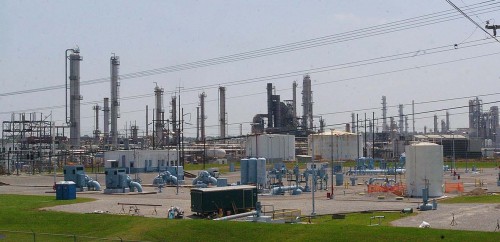14-year-old Lao among THS’s Class of 2011
May 17, 2011Thursday, May 19
May 19, 2011The petroleum industry is lifeblood to the Tri-parish region, and the product it produces and transports upriver to refineries for transformation to gasoline, other fuels and a myriad of consumer products is a critical element to the national economy.
Getting raw product to its ultimate market is expected to take a hit, according to the Louisiana Mid-Continent Oil and Gas Association, as rising flood waters and increased currents overtake the Mississippi and Atchafalaya rivers.
“[It] is of great concern to Louisiana’s energy industry,” said LMOGA President Chris John. “The oil and gas industry has a $70 billion impact on the Louisiana economy. With the rivers shut down to traffic, that will impact refineries and ultimately the rest of the nation.”
John said he did not know how many transport companies might be hit, but noted that refineries along the Mississippi and the Atchafalaya will not be able to accept raw crude oil or send out transformed products that require boat traffic.
“Refineries can only operate when they get their crude,” John said. “We have 17 refineries in the state and each of them is individual with different locations that generate different kinds of challenges. Most of the crude comes in via pipeline but some get their crude on barges.”
John said he had been advised not to speak about specific refinery locations, but confirmed that the Alon refinery, on the Atchafalaya River in Krotz Springs, would be adversely impacted with Saturday’s opening of the Morganza Spillway.
The Alon refinery processes more than 83,000 barrels of crude per day. Alon media relations contact, Blake Lewis, said as of Friday that operations at Krotz Springs were normal. “Colleagues there are continuing to monitor conditions and will adjust operations as needed,” he said. By Sunday, conditions had changed and adjustments were being made for Alon, which was handed, along with the surrounding community, an order to evacuate.
The Louisiana refinery industry involves more than 6,900 vendors in 49 parishes and 106 communities. Those vendors alone represent 8 percent of all business establishments in Louisiana. The state’s 17 refineries employ approximately 88,000 people that represent $17.5 billion generated in the state economy by way of wages, taxes, fees and services.
A U.S. Coast Guard spokesperson said that she did not know when either the Mississippi or Atchafalaya rivers might be completely closed to traffic, but confirmed it is likely as an anticipated May 23 crest of river levels approaches.
Exxon docks in Baton Rouge were reported as flooding with both barges and tankers having trouble navigating increased currents last Wednesday.
“Pipelines [also] traverse all around the delta,” John said. “A lot of these pipelines [transport crude] up the east coast all the way to New Jersey. If these waters are diverted by opening the Morganza … I’m not saying anything is going to happen, but that is a different environment we will have to work.”
John stressed that transporting oil to refineries is not simply a Louisiana issue, but is a matter of national concern from an energy standpoint. “I want to tell America that it matters what goes on in Louisiana,” he said. “We produce the energy that you use every day.”
The Alon refinery in Krotz Springs is one of the state’s 17 such facilities that is being impacted by floodwaters released Saturday from the Morganza Spillway and sent down the Atchafalaya River Basin, as well as others along the Mississippi River. COURTESY PHOTO







